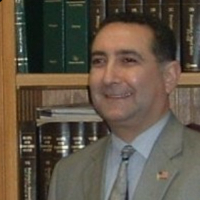Deerfield Criminal Lawyer, New Hampshire
Frank Cimler
✓ VERIFIED *Status is reviewed annually. For latest information visit hereDivorce & Family Law, Criminal, DUI-DWI, Accident & Injury, Business
Experience... When Experience Matters.
Attorney Frank Cimler is a Cum Laude graduate of the University of Maryland where he received a Bachelor of Science degree in Business Management and ... (more)
Joseph Welsh
✓ VERIFIED *Status is reviewed annually. For latest information visit hereCriminal, Motor Vehicle, Accident & Injury, Personal Injury, Car Accident
NH Attorney Joseph Welsh is an experienced trial attorney. He began trying cases while he was still a student in law school twenty years ago and hasn'... (more)
Pamela Rogers
✓ VERIFIED *Status is reviewed annually. For latest information visit hereAccident & Injury, Criminal
Pamela Rogers is a practicing lawyer in the state of New Hampshire and Massachusetts.
Tony F. Soltani
✓ VERIFIED *Status is reviewed annually. For latest information visit hereAccident & Injury, Criminal, Divorce & Family Law, Employment, Estate
Proven litigation experience in state and federal courts of over thirty years. Over 25 years of classroom and clinical teaching. Admitted to practice ... (more)
E. F. Nappen
Products Liability, Family Law, Criminal, Real Estate
Status: In Good Standing *Status is reviewed annually. For latest information visit here
Heath Norris
Criminal, Divorce, Family Law, Business Organization
Status: In Good Standing *Status is reviewed annually. For latest information visit here
FREE CONSULTATION
CONTACTPatrick J Arnold
Premises Liability, Traffic, Criminal, Accident & Injury
Status: In Good Standing *Status is reviewed annually. For latest information visit here
Adam M. Dumville
Industry Specialties, Trusts, DUI-DWI, Consumer Rights
Status: In Good Standing *Status is reviewed annually. For latest information visit here
Alexander Phillip Handy
Real Estate, Criminal
Amy Kathryn Beaton
Criminal
Status: In Good Standing *Status is reviewed annually. For latest information visit here Licensed: 31 Years




